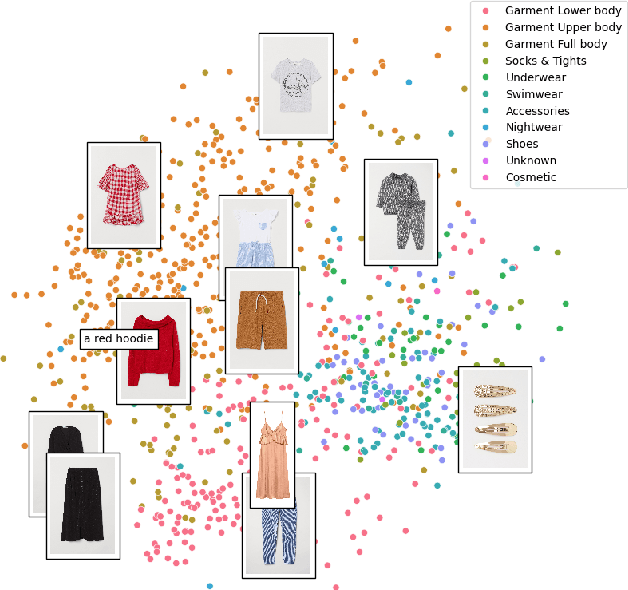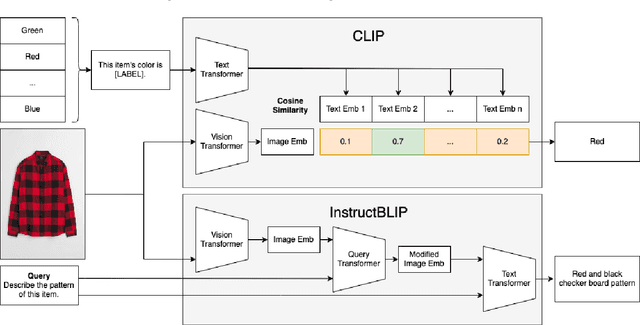Marie Al-Ghossein
Captions Are Worth a Thousand Words: Enhancing Product Retrieval with Pretrained Image-to-Text Models
Feb 13, 2024



Abstract:This paper explores the usage of multimodal image-to-text models to enhance text-based item retrieval. We propose utilizing pre-trained image captioning and tagging models, such as instructBLIP and CLIP, to generate text-based product descriptions which are combined with existing text descriptions. Our work is particularly impactful for smaller eCommerce businesses who are unable to maintain the high-quality text descriptions necessary to effectively perform item retrieval for search and recommendation use cases. We evaluate the searchability of ground-truth text, image-generated text, and combinations of both texts on several subsets of Amazon's publicly available ESCI dataset. The results demonstrate the dual capability of our proposed models to enhance the retrieval of existing text and generate highly-searchable standalone descriptions.
Proceedings of the 4th Workshop on Online Recommender Systems and User Modeling -- ORSUM 2021
Jan 17, 2022Abstract:Modern online services continuously generate data at very fast rates. This continuous flow of data encompasses content - e.g., posts, news, products, comments -, but also user feedback - e.g., ratings, views, reads, clicks -, together with context data - user device, spatial or temporal data, user task or activity, weather. This can be overwhelming for systems and algorithms designed to train in batches, given the continuous and potentially fast change of content, context and user preferences or intents. Therefore, it is important to investigate online methods able to transparently adapt to the inherent dynamics of online services. Incremental models that learn from data streams are gaining attention in the recommender systems community, given their natural ability to deal with the continuous flows of data generated in dynamic, complex environments. User modeling and personalization can particularly benefit from algorithms capable of maintaining models incrementally and online. The objective of this workshop is to foster contributions and bring together a growing community of researchers and practitioners interested in online, adaptive approaches to user modeling, recommendation and personalization, and their implications regarding multiple dimensions, such as evaluation, reproducibility, privacy and explainability.
 Add to Chrome
Add to Chrome Add to Firefox
Add to Firefox Add to Edge
Add to Edge